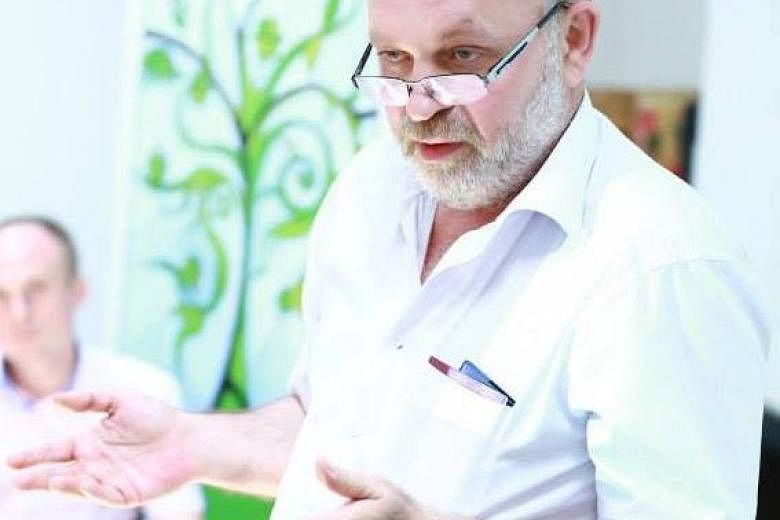A "three-parent IVF" technique has been used for the first time to allow an infertile couple to have a baby.
Doctors in Ukraine used a method called pronuclear transfer in what is a world first, said the BBC.
It is, however, not the first child born with DNA from three parents, the broadcaster added.
The baby girl, born on Jan 5 in Kiev, is thought to be the world's second "modern three-parent baby" - another child was created using a slightly different method in Mexico last year to avoid it inheriting a serious hereditary disease called Leigh Syndrome.
While this latest three-parent birth was designed to remedy infertility, the method employed last year in Mexico was intended as a way of dodging inherited genetic disease.
The Kiev team fertilised the Ukrainian mother's egg with her partner's sperm. They then transferred the combined genes into an egg taken from a donor, said the BBC.
The child has the genetic identity of the parents, alongside a tiny amount of DNA from the second woman.
Testing has revealed that the baby does indeed have DNA from both her parents, and the donor egg, said Kiev's Nadiya Clinic, according to a New Scientist magazine report.
"With the help of this method, a 34-year-old woman who had suffered from infertility for more than 15 years gave birth to a healthy baby that's genetically her own," said a Nadiya Clinic statement.
The couple had been unable to conceive with conventional IVF due to "embryo arrest" - when fertilised eggs stop growing after generating only a few cells, said Nadiya Clinic director Valery Zukin.
The idea is that there are factors within a cell that can help or hinder fertility - such as enzymes that help cells grow and divide.
By placing a pronucleus from the mother - which contains her chromosomal DNA plus that of the father - into the egg of a donor, the team may have found a way to get around whatever was causing the early arrest, New Scientist said.
Dr Zukin said the treatment could assist women whose embryos stop growing before they can be implanted in a womb, which affects around one in 150 IVF patients.
"It's like the opening of a new era," Dr Zukin told The Times.
"It's good news the child seems healthy, and that the procedure in this case seems safe, at least until birth," Bert Smeets, a fertility expert at Maastricht University in the Netherlands, told the New Scientist.
This may be a treatment that can treat various infertility problems caused by issues with an egg's cytoplasm, but it will not be the solution for all female fertility problems, he said.
But there are questions over whether it is appropriate to use this technique - which carries unknown risks - to treat infertility, said Smeets.
Professor Adam Balen, chairman of the British Fertility Society, told the BBC: "Pronuclear transfer is highly experimental and has not been properly evaluated or scientifically proven.
"We would be extremely cautious about adopting this approach to improve IVF outcomes."
The Nadiya Clinic is expecting a second baby in March.

